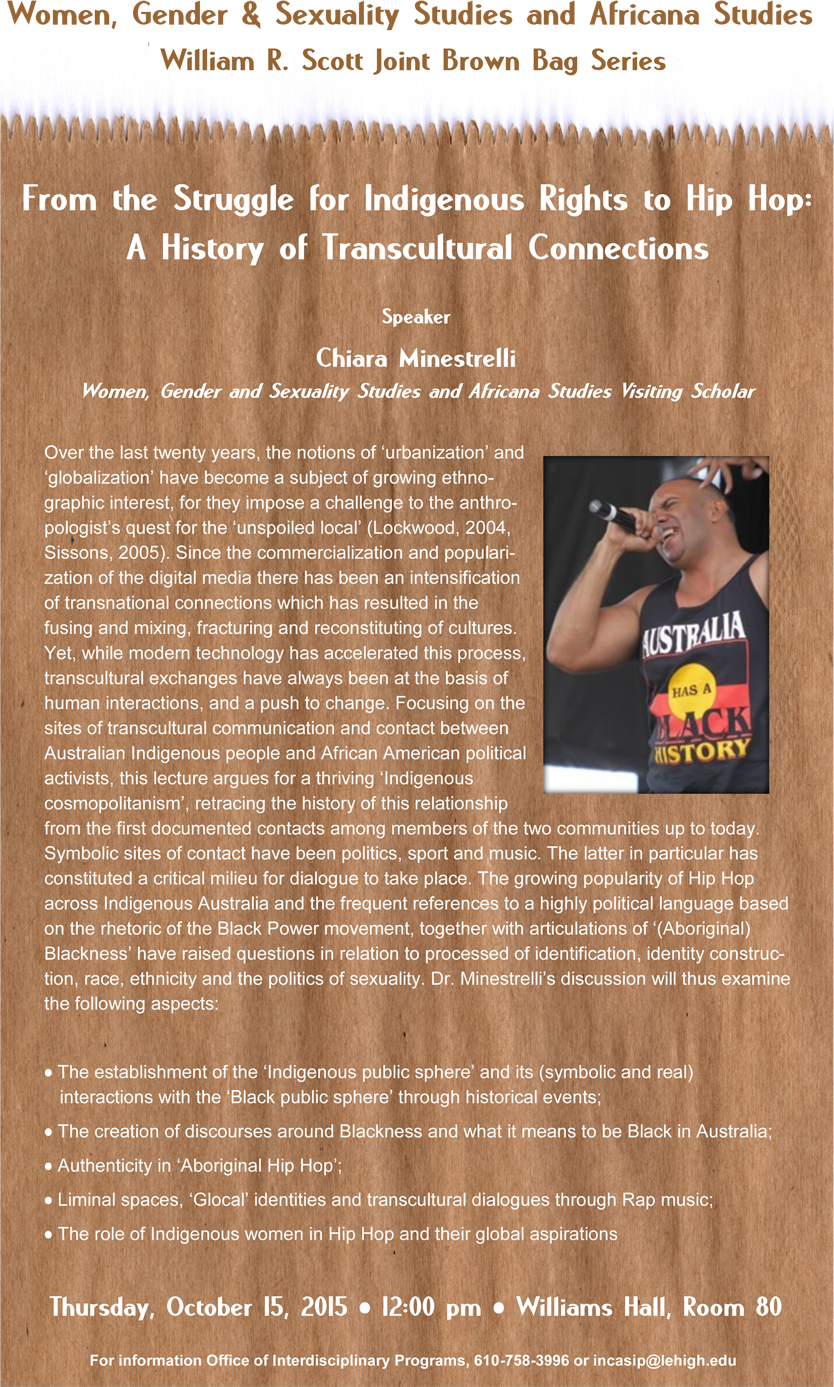Thursday, October 15, 2015 - 12:00pm
Williams Hall, Room 80

Over the last twenty years, the notions of ‘urbanization’ and ‘globalization’ have become a subject of growing ethnographic interest, for they impose a challenge to the anthropologist’s quest for the ‘unspoiled local’ (Lockwood, 2004, Sissons, 2005). Since the commercialization and popularization of the digital media there has been an intensification of transnational connections which has resulted in the fusing and mixing, fracturing and reconstituting of cultures. Yet, while modern technology has accelerated this process, transcultural exchanges have always been at the basis of human interactions, and a push to change. Focusing on the sites of transcultural communication and contact between Australian Indigenous people and African American political activists, this lecture argues for a thriving ‘Indigenous cosmopolitanism’, retracing the history of this relationship from the first documented contacts among members of the two communities up to today. Symbolic sites of contact have been politics, sport and music. The latter in particular has constituted a critical milieu for dialogue to take place. The growing popularity of Hip Hop across Indigenous Australia and the frequent references to a highly political language based on the rhetoric of the Black Power movement, together with articulations of ‘(Aboriginal) Blackness’ have raised questions in relation to processed of identification, identity construction, race, ethnicity and the politics of sexuality. Dr. Minestrelli’s discussion will thus examine the following aspects:
• The establishment of the ‘Indigenous public sphere’ and its (symbolic and real)
interactions with the ‘Black public sphere’ through historical events;
• The creation of discourses around Blackness and what it means to be Black in Australia;
• Authenticity in ‘Aboriginal Hip Hop’;
• Liminal spaces, ‘Glocal’ identities and transcultural dialogues through Rap music;
• The role of Indigenous women in Hip Hop and their global aspirations
